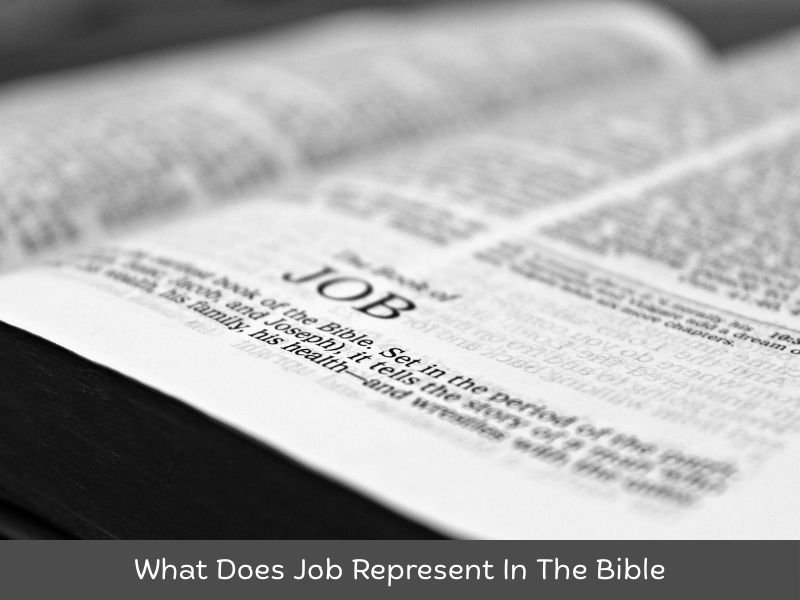Few biblical narratives challenge and inspire believers as deeply as the story of Job. This profound account, found in Scripture’s wisdom literature, grapples with life’s most difficult questions: Why do the righteous suffer? Where is God in our pain? What does authentic faith look like when everything is lost?
Job stands as more than just a historical figure—he represents every believer who has ever cried out to heaven amid unbearable trials. His experience embodies the universal struggle to reconcile God’s goodness with earthly suffering. Unlike other biblical heroes whose tests came because of disobedience, Job’s trials emerged precisely because of his righteousness, making his story uniquely powerful.
As we examine Job’s journey—from prosperity to devastation to restoration—we uncover transformative truths about God’s sovereignty, the purpose of pain, and the nature of genuine faith. His story doesn’t offer easy answers, but rather something far more valuable: a model for persevering when life makes no sense. This exploration reveals why Job’s ancient testimony continues to speak with startling relevance to modern believers walking through their own valleys of shadow.
Who Was Job in the Bible?
To understand what Job represents in the Bible, we must first know who he was. Job was described as “blameless and upright,” a man who feared God and shunned evil (Job 1:1). He lived in the land of Uz and was immensely wealthy, with a large family and great possessions.
Despite his prosperity, Job’s life took a devastating turn. In a divine conversation, Satan challenges God, suggesting that Job’s piety is conditional on his blessings. God allows Satan to test Job, stripping him of his wealth, family, and health.
Job endures all this without cursing God, displaying remarkable faith. This is the foundation of what Job represents in the Bible: an image of righteous endurance in the face of unexplainable suffering.
Moreover, other biblical references affirm Job’s exemplary character. Ezekiel 14:14 lists Job alongside Noah and Daniel as paragons of righteousness. James 5:11 celebrates the “patience of Job,” reinforcing the model he represents for Christian perseverance.
What Job Symbolizes Spiritually and Theologically
When we explore what Job represents in the Bible spiritually and theologically, several dimensions emerge. Job symbolizes faith tested by fire, revealing how true devotion to God withstands adversity.
First, Job represents faith under trial. Even as he questions God’s reasoning, Job never abandons his belief. This spiritual symbolism emphasizes that genuine faith does not rely on favorable conditions but remains steadfast through hardship.
Second, Job symbolizes the mystery of divine sovereignty. God’s ways are not always revealed to humankind, and Job’s story shows that some trials serve higher purposes beyond human understanding. This aligns with the statement in Job 38–41, where God questions Job to reveal the limitations of human wisdom.
Third, Job represents spiritual endurance. His ability to suffer without sinning showcases a level of maturity in faith that inspires believers to remain loyal despite loss.
Ultimately, what Job represents in the Bible is a theological anchor: proof that God’s justice and goodness can coexist with human suffering, even when that suffering seems undeserved.
Lessons and Moral Themes in the Book of Job
Understanding what Job represents in the Bible also involves unpacking the moral and theological lessons embedded in his story.
Trusting God Amid Trials: One key lesson is to trust God even when circumstances are unfavorable. Job’s life challenges the notion that righteousness guarantees comfort. His trials reveal that spiritual integrity is not a transactional relationship with God but a covenant based on love and trust.
The Limits of Human Understanding: When Job demands an explanation, God responds not with answers but with questions, reminding Job of the vast gap between divine and human wisdom. This interaction teaches humility and faith in God’s ultimate plan, even when we don’t comprehend it.
The Power of Perseverance: Job’s story demonstrates that perseverance leads to spiritual maturity. He moves from questioning to deeper reverence, showing that enduring trials can elevate faith to new heights.
The Role of Friends in Suffering: Job’s friends, though initially supportive, ultimately become critical and judgmental. This illustrates the importance of empathetic support over self-righteous counsel in times of need.
Restoration Follows Faithfulness: In the end, Job is not only restored but receives double his previous blessings (Job 42:10). This teaches that while suffering may be temporary, divine restoration is a promise for those who remain faithful.
By reflecting on these themes, we gain a clearer picture of what Job represents in the Bible—a blueprint for righteous suffering and unwavering trust in God.
What Job Represents in Christian Life Today
In modern Christian living, understanding what Job represents in the Bible helps believers navigate personal hardship with spiritual confidence.
Job stands as a symbol of strength and integrity in a world where people often equate blessings with righteousness. He reminds Christians that trials are not punishments but sometimes divine opportunities for growth.
For the believer facing terminal illness, job loss, or emotional despair, Job’s story offers hope. It teaches that being in the center of God’s will does not exempt one from suffering. Such trials may affirm one’s spiritual alignment.
Job also represents the importance of honest dialogue with God. He questioned, mourned, and lamented, yet was never condemned for it. This honesty in prayer is a crucial lesson for modern Christians struggling with internal pain.
Moreover, Job’s story reassures believers that God does not abandon the faithful. Even when heaven seems silent, God is present. His restoration of Job serves as a testament to divine faithfulness that endures beyond trials.
In every way, what Job represents in the Bible for today’s Christians is resilience, integrity, and spiritual hope.
Contrasts Between Job and Other Biblical Figures
Exploring what Job represents in the Bible becomes even richer when we contrast him with other key biblical figures.
Job vs. David: While both men suffered, David often faced trials as a consequence of his actions. Job, however, suffered innocently. This contrast highlights that not all suffering is corrective; some are refining.
Job vs. Jonah: Jonah resisted God’s will and suffered due to disobedience. Job obeyed and still suffered. Their stories clarify that suffering can result from either rebellion or righteousness, showing the multifaceted nature of divine discipline and testing.
Job vs. Jesus: Both Job and Jesus were innocent sufferers. However, Job questioned God, while Jesus submitted fully, saying, “Not my will, but Yours be done” (Luke 22:42). Jesus’ suffering was redemptive for all, whereas Job’s was personal and instructive.
These contrasts underscore the unique dimensions of what Job represents in the Bible: the mystery of righteous suffering and the call to endure without full understanding.







